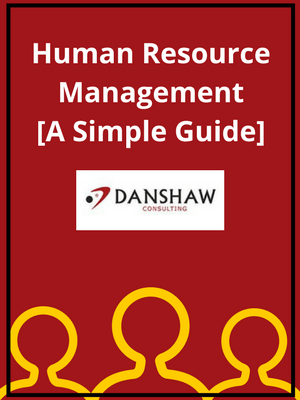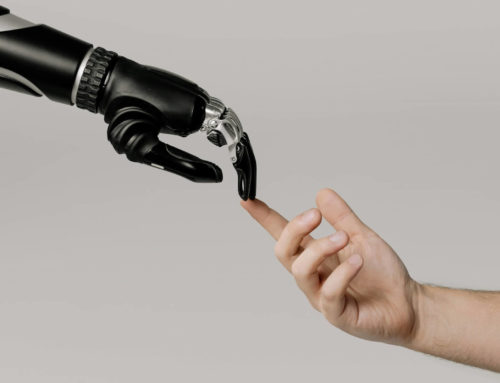Human Resource Management [A Simple Guide]

Human Resource Management [A Simple Guide]
 Whether you’re an employer or an employee it pays to understand the ins and outs of Human Resource Management.
Whether you’re an employer or an employee it pays to understand the ins and outs of Human Resource Management.
Effective Human Resource Management means increased productivity among employees, which means increased capital gains for the owner/employer.
It also means more attentive and communicative managers and/or employers which translates into happier employees who feel both fulfilled and appreciated at work.
Essentially, good Human Resource Management is the grease that keeps all the gears happily grinding away; a happy employee, is a productive employee!
And an attentive, communicative manager/owner makes a happy employee.
It’s that simple!
Or is it?
Allow us to break down Human Resource Management for you, and provide you with a simple guide to understanding, and implementing effective Human Resource Management strategies.
Are you a Small Business, Company or Large Organization looking for Human Resource Management Consulting or Outsourcing?
Danshaw can help! Contact us for more information.
Table of Contents
– What is Human Resource Management –
– The Objectives of HR Management –
– Strategy Development Process –
– The Functions of HR Management –
– Human Resource Planning –
– Outsource HR Management –
(Click to go to section)
What is Human Resource Management exactly?
Human resource management essentially does exactly what the name suggests.
The process of Human resource management entails finding effective means by which to engage a business’ human resources in the success of the business.
In other words, finding effective ways of ensuring your employees keep investing their time and effort into their own success as well as the ultimate success of the company.
Effective Human resource management starts with proper recruitment and hiring strategies and extends to negotiations on rates and benefits, as well as incentives.
Human resource management also addresses issues such as internal restructuring, deals in conflict resolution and assesses employee performance on a larger scale.
– Hiring and Recruiting
The Human resource management department (or your HR Management Partner) is responsible for a recruitment-and-hiring strategy.
This team knows best which key players your business will need in order to excel moving forward, and this team is best equipped to assess the compatibility of potential candidates with your business’ vision and mission as well as other potential team members and superiors.
The HR Management team is then responsible for creating Job Descriptions in order to attract suitable applicants for available positions, as well as being responsible for the interviewing process and the organization of further training should it be necessitated.
– Effective Communication
The HR Management department or partner is the governing body or figurehead that serves to assure all employees of a company that everyone is playing by the same rules.
By improving communications frameworks within the business and encouraging transparency among colleagues, the HR Management department also serves to build and reinforce a spirit of camaraderie and communal identity among employees.
This atmosphere breeds loyalty to the business and encourages employees to go the extra mile and take pride in their work.
– Calm in a crisis
Unfortunately, tensions do arise in the workplace and your HR Management department or partner is responsible for facilitating conflict resolution.
Often, the very idea that there exists an impartial third-party observer with the authority to call out right from wrong squelches conflicts before they even arise.
A good HR Manager is a good mediator, is a good counselor and will ensure that conflict is resolved in a timely fashion and that both parties understand the outcome of the disagreement and how this outcome benefits the company.
For example: If Employee A is disagreeing with Employee B over the best way to advertise Product A – the HR manager will review the facts and act as judge and jury, asking for input and advice from other department heads where necessary, in order to reach a conclusion as to how the advertising of Product A will proceed.
The HR manager will then also ensure that both persons A and B understand why a particular strategy was chosen.

THE OBJECTIVES OF HUMAN RESOURCE MANAGEMENT
In order to understand the objectives of HRM, we must first define the organizational structure in which they operate.
We can define organizational structure as the logical division and delegation of certain tasks or activities to certain groups, to be supervised by other groups, but still all working together in order to achieve the organizational aims, which can also be considered the organizational objectives.
In other words, “organizational structure” refers to the way in which human resources (employees) are organized, be it hierarchically or otherwise, into teams who have specific roles to complete in pursuit of the organization’s goals.
Think of the organizational structure of a company in terms of the organizational structure of a beehive – there are workers and overseers and a queen, just like there are employees, employers, and an owner.
4 MAIN OBJECTIVES OF HRM
1. Defining the organizational structure in an effort to drive productivity
We as human beings are prone to performing better when we know where we and our tasks and actions fit into the bigger scheme of things.
As such, defining the organizational structure from the get go means everyone involved in achieving the organizational aims knows what has happened or been done by whom before them, and to whom they in turn need to report.
HRM is really a management method aimed at realizing the company collective’s full potential and driving up productivity when it comes to organizational work.
HRM not only sets out guidelines for achieving organizational aims, but also engenders organizational efficacy by hiring the right people for the right job at the right time.
HRM is also about building employees up and ensuring that employees are motivated to achieve organizational goals on a personal level, because employee confidence and investment in the job is key to success.
Also Read – Skills Development & Training For Businesses
2. Fostering cooperation and ensuring coordination between organizational departments
HRM is responsible for making sure all the human cogs in the company clock mesh together. From ensuring cooperation to adequate coordination, the HRM needs to ensure that everyone is working together and doing their part to help reach organizational goals.
Efficient HRM also ensures that there is room for the overall growth of HR.
It is the responsibility of the HRM team to ensure that the right people are being given the right tasks at the right time, and that the organizational sectors are defined and organized for optimal efficiency and success.
The HRM team is responsible for everything from HR planning and recruitment to ongoing evaluation, HR rewards and incentive systems, additional training and opportunities for further learning and employee improvement.
3. Ensuring Employee Satisfaction
With unemployment rates being what they are, and local companies struggling to retain key employees and losing them to foreign markets, it is more important now than ever that HRM ensures the correct people are hired and correctly trained to do their jobs well.
In an effort to retain talent, HRM should also prioritize a healthy, safe, and respectful working environment for all while ensuring that individual needs are met.
Any HR strategies for personal employee improvement and accommodation must, however, be cohesive with the organization’s strategic goals.
Wherever possible, the HRM team should strive to align employees’ personal goals and objectives with those of the organization, thus putting the employees and the company in the best position to achieve their goals and maintain a competitive edge.
4. Staying Current: Societal and Ethical Models
It is of fundamental importance that the HRM team ensure that the company’s interests are protected, and that the company as a whole as well as each individual employee is complying with industry legal, ethical and environmental codes.
The HRM team will also be responsible for managing the company’s Corporate Social Responsibility campaigns.
The HRM team must also give due consideration to societal objectives, such as AA, equal opportunity and equal pay. By contributing to societal objectives, the company may have a handle on gaining a competitive edge.
Also read our Performance Management & Job Grading Article

The Human Resource Strategy Development Process
Developing an HR strategy can be easily broken down into a handful of steps that, if followed, will ensure that the resultant strategy has a direct impact on business growth and ultimately company success and the achievement of organizational aims and company goals.
– Step One –
This is the information gathering stage. The HR department will assess the company and any individual employees’ current goals, as well the company and the employees’ current capacity.
Information will also be gathered on the organizational development timeline of the company – past, present and future projections.
By gathering these kinds of information, those responsible for developing an HR strategy are aiming to equip themselves adequately to take on Step Two.
– Step Two –
Once the aforementioned information has been gathered, the HR department will try and use this information to forecast HR requirements.
By predicting what the company will need when in terms of HR, allows the HR department to hire the talent necessary, or do additional in-house training as needed.
At this point the HR team responsible for strategy development may choose to involve the employees on a workshop level, creating a platform for the employees to engage directly with their superiors in order to discuss and analyse the information gathered by the HR team in step one.
Also to discuss the requirements of the company going forward, as well as hear any ideas the employees may have for aiding in the quest to attain organizational goals given the information collected in step one.
After everyone has been involved in a workshop, the HR strategy development team will also have a managerial workshop where the higher-ups meet to discuss and take the strategy to the next level.
They will discuss which processes and teams as a whole are contributing most to company profitability, which processes or departments show stability or trend upward, and in which processes or departments the company is showing high employee turnover, a lack of productivity, or any otherwise negative impact on profitability.
These trends will need to be addressed by the final HR strategy in the HR Strategy document.
Also Read – Compensation & The Minimum Wage
– Step Three –
Step Three involves developing existing talent strategies as well as figuring out how these existing talent strategies will fit into the larger, overall HR strategy for the company.
Before advocating the hiring of additional staff, the HR department must assess the feasibility and likely success rate of further developing existing talent, and come up with a strategy for the implementation of further training for talented employees, and those who show promise and loyalty to the company.
Once the HR team responsible for the HR Strategy have made decisions as to the impact of existing talent strategies on the organizational HR development strategy, they can begin drafting that document.
Once an HR Development Strategy has been drafted, this document will be made available for feedback on every level – i.e. employees, managers, and executives will be invited to offer feedback on the HR Development Strategy draft.
– Step Four –
Any redrafting will take place at this juncture, and once the final document has been drawn up and approved, it is time to implement and review the efficacy of the new HR Development Strategy in practice.
It is also of vital importance that the HR department go on reviewing the efficacy and implementation of the strategy on an ongoing basis so that they can step in and make amendments to the strategy as needed to ensure that minimal time is lost in correcting or amending the strategy, and that organizational goals are reached on schedule.
Are you a Small Business, Company or Large Organization looking for Human Resource Management Consulting or Outsourcing?
Danshaw can help! Contact us for more information.

The Functions of Human Resource Management
SO, WHAT IS MY HR DEPARTMENT REALLY DOING FOR ME?
HR management, and your HR department as a whole, has a number of functions, all of which are geared toward helping your company maximize productivity and realize organizational aims and goals. Some of the primary HR Functions include:
– Recruitment and Selection
Your HR department makes sure that your company hires the right people to do the right job at the right time.
They are constantly on the lookout for established, as well as emerging talent, and they are the ones who will be responsible for advertising, recruiting and selecting new employees when there is a vacancy that needs filling.
– Orientation (New Employees)
Your HR department are responsible for getting new employees all settled in and ready to go.
This means everything from briefing them on company culture to integrating them into their department and ensuring cooperation from the rest of the staff.
Orientation may also include some basic training, briefings on workplace safety, and discussions about the awarding for benefits and their compensation package as a whole.
Also Read – Temporary Employment Services – Labour Relations Act Section 198
– Workplace Safety
Your HR department helps ensure workplace safety – whether this means offering seminars on workplace safety if your company operates in a more dangerous sector (such as mining, for example), or whether this means ensuring all the employees feel safe in the workplace.
Workplace safety can refer to bodily safety, such as from falling objects or sexual harassment and assault in the workplace, or even to psychological safety, such as protecting employees from hazing, intimidation or blackmail in the workplace.
A healthy and safe employee is a happy employee, and a happy employee is a productive one; so by making sure your employees are safe and healthy, your HR department is having a direct positive impact on the company’s overall productivity.
– Employee Relations (Industrial Relations)
If employees employ a trade union representative to negotiate or speak on their behalf, this trade union rep will engage first and foremost with the HR department.
Similarly, if any of your employees are experiencing discomfort or conflict in the workplace, the HR department is their first stop on the road to conflict resolution and can be called in to mediate discussions on any level.
– Compensation and Benefits
The HR department is responsible for negotiating compensation and benefits with the employees, as well as being responsible for administering these benefits and compensations. If an employee is having problems with a pay-cheque, for example, they’ll consult the HR department.
If they feel they are not being adequately compensated for their work, they’ll negotiate the terms of their contract with the HR department.
– Compliance
Complying with relevant laws and regulations is vital to sustainable business growth no matter which sector the company operates in, and the HR department are responsible for ensuring the company’s compliance with all relevant codes, laws, and regulations.
HR is also responsible for ensuring that individual departments are operating within the confines of the law/regulations.
– Training and Development
The Human Resources Department is responsible for all further skills development opportunities made available to employees.
They are also responsible for ensuring that, as laws and regulations change, they maintain compliance with these changing laws by training and developing employee skills as and where necessary in order to meet shifting standards and requirements.
Also read our Industrial Relations Article

What is Human Resources Planning and Why is it so Important?
In order to understand the importance of Human Resources Planning, we first need to define what we mean by it:
Human resources planning aims to meet a business’s objectives regarding manpower, labourers, employees and more.
Human Resources planning is imperative in directing resources toward production and productive activities and it is an important process aiming to ensure that a business’s strategy is enacted in its operation.
Put simply, as a rugby coach, you wouldn’t send your team into a match without a game plan, would you?
Why is HR planning so important then?
The following are vital functions of HR Planning (Again, think about a rugby coach trying to work out a game plan for his team):
1. Predicting the future
Your HR planning department/manager aims to ensure that your business is optimally staffed at all times in order to ensure problem-free production.
HR planning is thus a tool by which your business assesses its potential future needs and makes plans to meet those needs accordingly.
2. The times they are a-changin’
HR planning takes into account external factors that may necessitate changes within a business – be it considering outside indicators that would lead to retrenchments, planning for future recruitment based on an upward trend in share prices, or considering the business’s official stance on matters of a socio-political or socio-cultural issue.
HR planning focusses on adapting the HR inventory when outside factors influence the business.
3. Headhunter
Consider your HR planning portfolio manager your in-house headhunter.
An important function of HR planning is sourcing and selecting the most capable personnel to fill vacancies.
The HR planning department is responsible for determining HR needs, assessing the HR inventory to determine if those needs can be met from within, and looking further outside the business if that is not the case.
4. Developing your HR inventory
HR planning takes into account potential further training employees may need in order to continue to meet changing standards and skill requirements within their given fields – and budgets both time and money accordingly.
5. Effective HR Management
HR planning is essential to effective HR management.
The HR planning committee focuses on how to best utilize skilled human resources in order to maximize profit and minimize the overall cost of production – the HR planning team’s plans are enforced by/through/as HR management.
6. Expect the Unexpected
HR planning aims to ensure that a business is prepared for anything – is expecting the unexpected.
This helps reduce the impact of uncertainty and change on the business and its employees.
Now that you know all this, why would you still choose to outsource Human Resource Management you ask?
Well, Human Resource Management is a highly specialized skill.
HR Managers roles and responsibilities range from dealing with payroll, tax filing, employee rates and benefits, conflict resolution, legal compliance, training and development, to completing other general administrative tasks every single day.
As a result of the sheer variety and complexity of the tasks an HR Management team completes, an HR Management department is sometimes simply not feasible to maintain in-house.
That’s where outsourcing comes in:
Whether your start-up’s growth is suddenly getting away from you, or you’re hiring your thousandth employee for the family business that’s been running for generations, a dedicated HR Management partner can take care of the day-to-day, freeing you up to focus on the bigger picture.

3 Reason Why You Should Consider Outsourcing Your Human Resource Management?
#1 Focus
An HR department does not produce a product or render a service to a business’ clients – as such, the HR department is not turning a profit for a business, and yet it can be one of the most costly departments to run – costing both a lot of time and money is order to maintain.
By outsourcing their HR Management, businesses are saving time and money by leaving HR issues to the professionals.
By saving time and money in investing in an HR Management partner, business owners are really ensuring that their best employees are free to pursue the company’s bottom line; as opposed to resources (both human and otherwise) being sucked dry by an HR department that is likely to be sub-par anyway due to its highly specialized nature.
Also Read – 6 Employment Issues Every Business Face
#2 Rules and Regulations
HR Management teams deal with compliance by companies to local, national and international rules and regulations that govern their given sector. Nobody knows local compliance laws like an efficient HR manager.
By leaving the paperwork to the professionals an employer can rest assured knowing his employees can focus on profitability, while his human resource management partner is taking care of the legal compliance – drawing up appropriate contracts, managing employee schedules according to regulations on work-hour restrictions, and ensuring that employee rates and salaries are in compliance with mandated minimums etc.
#3 Tools of the Trade
Employing a company that specializes in HR management gives an employer access to resources his business may otherwise not have been able to afford.
For example; keeping a lawyer on-staff in order to draw up appropriate employment contracts may not be financially feasible – but employing an Human Resource management partner to take care of contract construction for you, may be.
Conclusion
At the end of the day, whether you choose to deal with Human resource management issues internally, outsource your Human resource management to qualified professionals or hire a qualified Human Resources Manager yourself so that you’ve got your own professional on staff.
HR Management is an important function of your business in order to keep employees happy and productive.
Remember that, as an employer and/or business owner, you have a responsibility not only to your consumers, but to your employees as well. In the long run, effective Human resource management really equates to you helping (your employees help) yourself.
Are you a Small Business, Company or Large Organization looking for Human Resource Management Consulting or Outsourcing?
Danshaw can help! Contact us for more information.
Resources used:
Human resource management – Wikipedia.com
Ten Reasons Why the Human Resources Department Is Important – Smallbusiness.chron.com
Six Main Functions of the Human Resource Department – Smallbusiness.chron.com
What is Human Resource Management. Why is it Important? – Content.wisestep.com
The Objectives of HR – Keka.com
4 Important HR Objectives – Yourarticlelibrary.com
What is the Human Resource Planning Process – Lucidchart.com









